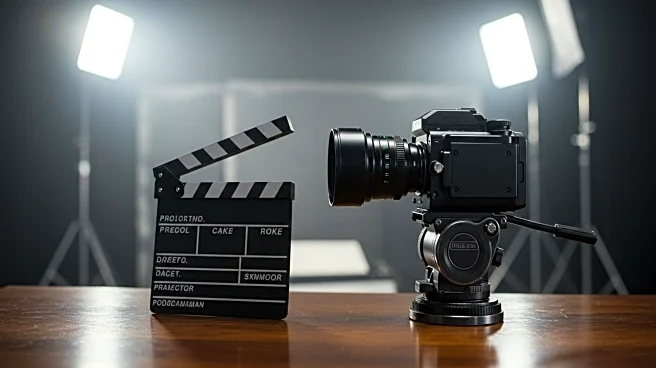What's Happening?
United Talent Agency (UTA) is advancing its product placement strategy in film and television, aiming to optimize brand integration within Hollywood productions. The agency has developed proprietary tools to forecast the impact of product placements, helping brands decide where to allocate their advertising budgets. This initiative comes as producers seek additional funding sources due to budget cuts in content creation. UTA's product placement department, led by Jillian Raskin, is actively involved in integrating brands directly into shows, bypassing traditional ad sales teams. Recent successful placements include Lyft in 'Shrinking' and Montblanc in 'The Bear,' among others.
Why It's Important?
The growing interest in product placement reflects a shift in how brands and producers collaborate, potentially altering advertising strategies in the entertainment industry. By embedding products within content, brands can achieve lasting visibility, unlike fleeting traditional ads. This approach not only supports production budgets but also enhances storytelling by incorporating real-world brands, making scenes more relatable. For brands, successful placements can lead to increased exposure and association with popular shows, potentially boosting sales and brand recognition. However, the unpredictability of a show's success poses challenges in forecasting the return on investment.
What's Next?
As UTA continues to refine its product placement strategies, other agencies and studios may follow suit, leading to more sophisticated brand integrations in entertainment. Producers might increasingly rely on direct partnerships with brands to fund projects, potentially changing the landscape of television and film production. Stakeholders, including brands and producers, will likely monitor the effectiveness of these placements, adjusting strategies based on audience reception and viewership data. The evolving dynamics could also prompt discussions on ethical considerations regarding brand influence in creative content.
Beyond the Headlines
The integration of brands into entertainment raises questions about the impact on creative freedom and the authenticity of storytelling. While product placement can enhance realism, it may also lead to concerns about commercial influence overshadowing artistic expression. Additionally, the practice of using brands without permission, protected by fair use, could spark debates on intellectual property rights and brand representation. As the industry navigates these complexities, balancing commercial interests with creative integrity will be crucial.










